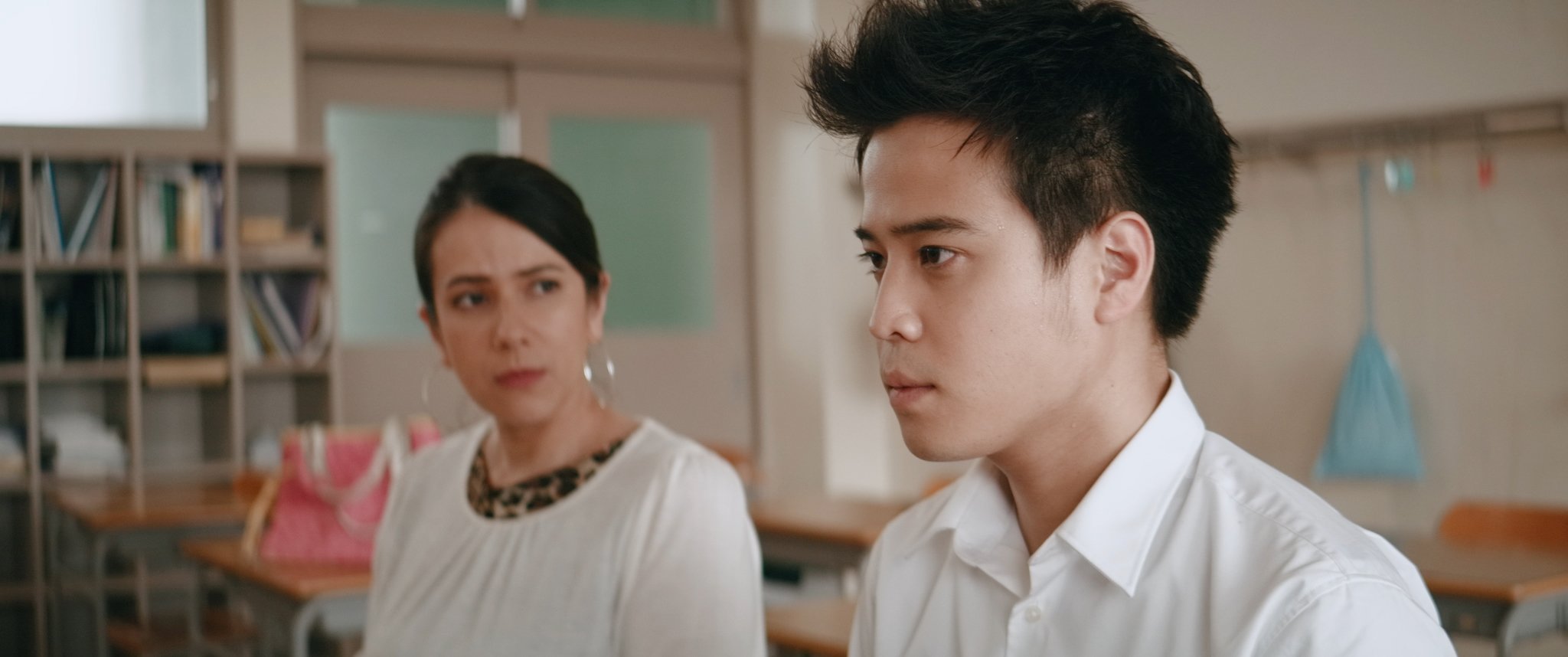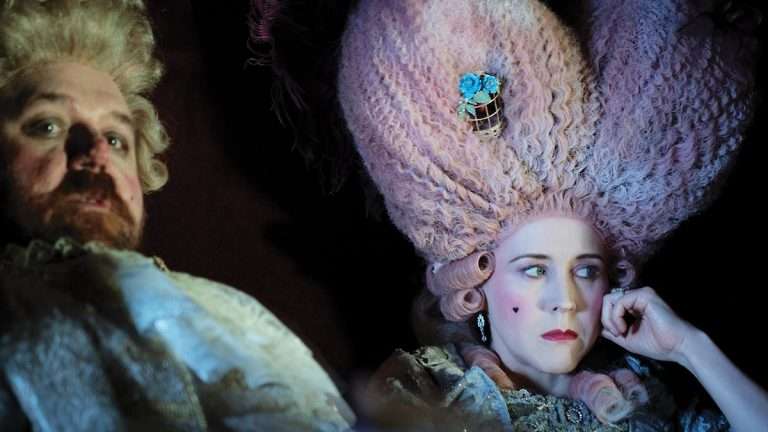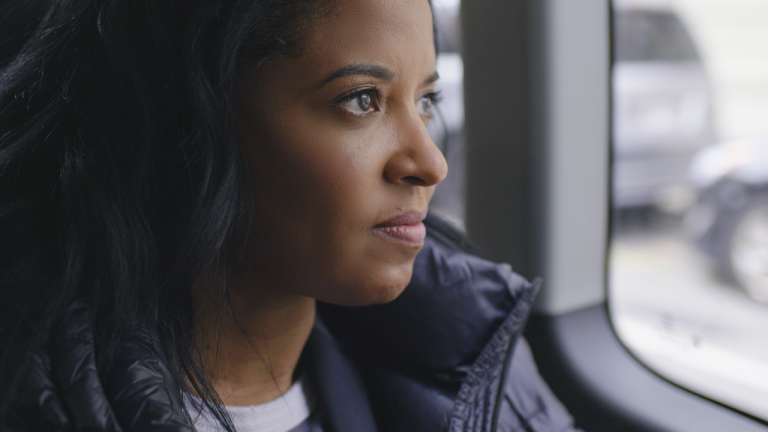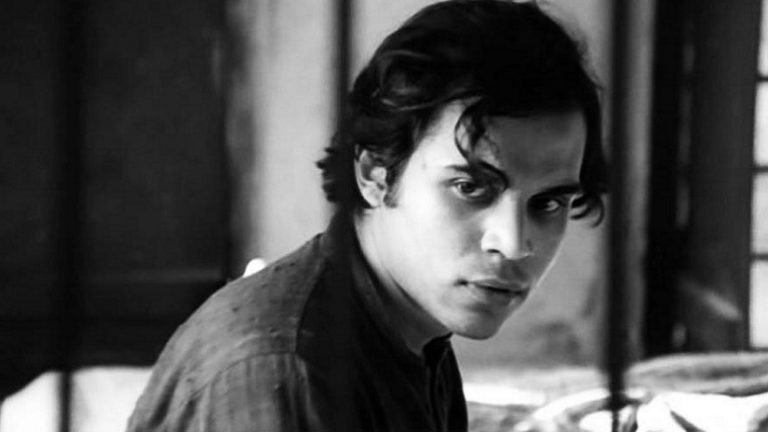Every time I am watching a coming-of-age story, I secretly wish the director brings to screen a glimpse of the whirlpool of emotions that a teenager goes through at the cusp of adulthood. It is a strange age, almost bittersweet, especially for a boy of 18 struggling with racial and gendered otherness in an otherwise homophobic, racist Japanese society. I am talking about Jungo, the 18-years-old Japanese-Filipino boy and the protagonist of the film, Angry Son (2022), directed by Kasho Iizuka. He is angry, so angry that when he goes round and round on his bicycle outside his mother’s ex-husband’s office, you can almost see the anger reflected on his face; you, inevitably, worry. How will such an angry teen come of age? Iizuka, in this directorial debut, allows us to experience a tough but emotional rollercoaster ride with Jungo, albeit taking it too far in the end.
Jungo is angry. He cannot concentrate on his studies or the relationship he shares with a classmate. The reason for his anger is his mother (or is it?) – Reina, earlier known as Lisa, is a Filipina bar hostess and barely earns enough money to sustain the both of them. Deeply troubled already, Jungo comes home one day to find out that her mother is planning to marry another man. He outright refuses to share his life with him and sets out in search of his real father.
Related to Angry Son – Don’t Make Me Go (2022) ‘Prime Video’ Review: A Heart-wrenching Tale Of Self-discovery And Realization
The journey is the key in any coming-of-age movie; this one too takes us through the many encounters that Jungo has with people in the process of discovering his father’s identity. He tosses his relationship and education in the air for this self-discovery, but will his anger at life ever reduce? I was deeply struck by the nuance in the narrative and how well the writers juggle with the otherness embedded in Jungo in the course of the narrative.
However, the story branches off into a direction where high schoolers talk about family making and having babies – so unnecessary – but I figured it becomes important to actually make way for young adults in the movie to openly talk about their sexualities. Although Sex Education, the British television series, has been outrageously educating us about sexuality, sex, and everything related to teenage off-late, there is little variety in the coming-of-age content on the web that can positively counter the heteronormative narrative around it.
Angry Son (2022) is also an exception in the coming-of-age movie scene because, at its heart, we see a queer young-adult couple, unsure about where they will land up in the relationship and how to handle their sexual urges but confident about their queerness. Their sexuality is the last of their worries. They face some bullying from other kids in school and class due to their sexuality, but it doesn’t make them question it. In one of the first scenes, Jungo and his boyfriend sit down with the boyfriend’s parents and discuss how same-sex marriages are not recognized by the government, and they discuss entering into a formal partnership. This feels a little stretched.
I cannot imagine 18-year-olds of today’s generation talking about officialising a school relationship, but that is because my experiences in life as an adult tells me to know better. On the other hand, the normalising of queerness is a sign that we are finally moving on from the stage of educating the public about it – a sign of victory.
Also, Read – 50 Best Japanese Films Of The 21st Century
The racial discrimination that Filipino people face in Japanese society is also held up in the film. Jungo is a biracial teen; he cannot seem to accept his Filipino side. When he is on the swing with the two children of his mother’s ex-husband, he tells them that it is strange that he was born and brought up in Japan, but he isn’t Japanese. The crisis of identity emerges from this feeling of rootlessness in Jungo. His anger towards her mother stems from the fact that she is Filipino. No wonder he looks for the father (a phallic centre) to find more meaning in his life.
Kazuki Horike is fantastic as Jungo. He is angry, moody, and unlikable, just as the character demands him to be. Gow, the singer and actress playing the character of Reina, however, seems to be a little over-the-top. The mother-son dynamic works in a few scenes when they are seated at the dining table or walking home, but there’s no latent warmth in it otherwise. Jun’s confusion is mirrored in how the director’s camera unsteadily sways throughout the film. However, the camera work makes concentrating on the narrative positively difficult.
Angry Son (2022) presents us with finely-written characters and brings out the chaos that a parent-child relationship can be during young adulthood. Even after the film ended, I couldn’t help but ask myself if Jungo’s anger would ever decrease with the coming of age, or was it just the beginning of it?





![Lucy in the Sky [2019]: ‘TIFF’ Review – Never Takes Off](https://79468c92.delivery.rocketcdn.me/wp-content/uploads/2019/12/Lucy-in-the-Sky-768x512.jpg)
![Violence Voyager [2018]: Fantasia Film Festival Review](https://79468c92.delivery.rocketcdn.me/wp-content/uploads/2018/07/Violence-Voyager-2018-768x432.jpg)



